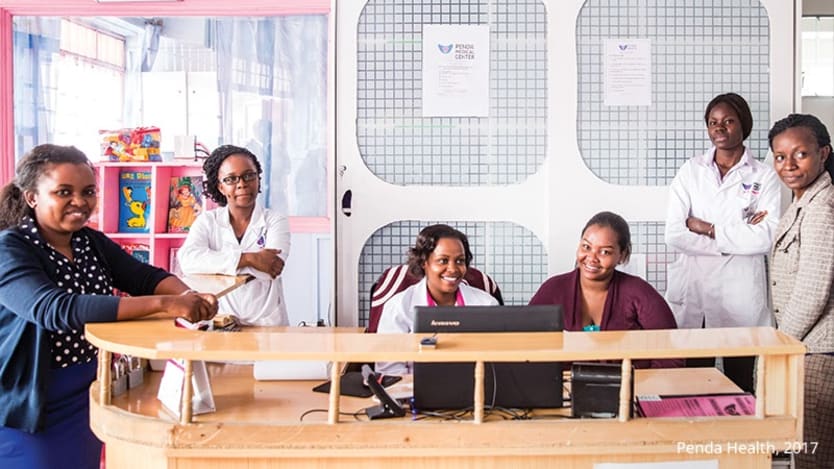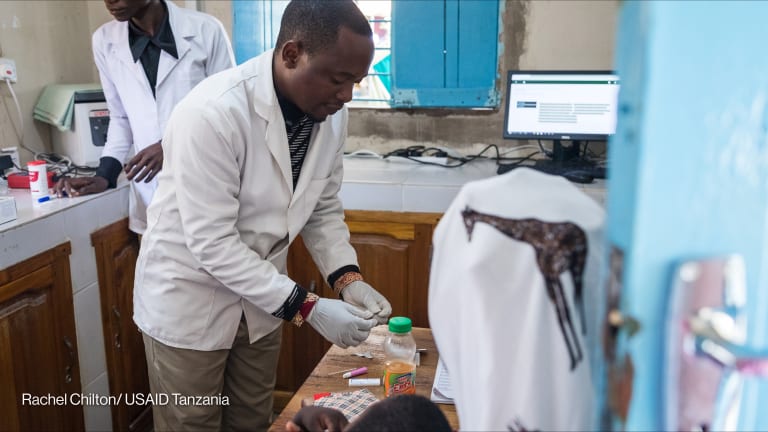
Today’s global crisis has shone a spotlight on health inequity, both regarding the risks and outcomes of COVID-19 infections but also in overall access to care. Historically underserved groups have been disproportionately impacted by the pandemic. They often experience reduced access to care when they need it, putting them at an even greater risk.
According to the Inequalities in Health Alliance, the pandemic has exposed and amplified underlying health inequalities in society, making it even more urgent to tackle the social causes of these disparities. A World Health Organization review has called for countries to assess policies for their effects on health inequity at the heart of the immediate response, but also to implement mitigation measures to address inequitable impacts as part of longer-term approaches to recovery.
These kinds of approaches are vital given the potential consequences of the disruption of essential health services due to the coronavirus. According to another recent WHO report, 90% of the 105 countries surveyed have experienced disruptions in the delivery of health services, with low- and middle-income countries feeling the greatest burden.
More on Prescription for Progress:
► Partnering for preparedness: 4 takeaways from Prescription for Progress 2021
► Q&A: Designing health systems for patients, not donors
► Scaling health innovation: Lessons from Prescription for Progress 2020
Devex spoke to Darren Back, vice president of global health investments at Pfizer Inc., and the executive director of The Pfizer Foundation, about how the company is working to combat infectious diseases and improve health access through partnerships and the support of social entrepreneurs.
The conversation has been edited for length and clarity.
In what ways has the COVID-19 pandemic highlighted and exacerbated existing inequalities in health care access, particularly relating to infectious diseases in low- and middle-income countries?
When we do see epidemics or pandemics, it is often the most vulnerable that are hardest hit. It's unfortunate that it takes crises such as this one to really highlight the inadequacies of health access and the disproportionate burden we see within communities. The most worrying thing for many health care systems in low- and middle-income countries is that they're not always prepared for that level of crisis. Inevitably, what happens is that when a new threat comes along, resources and focus are shifted to addressing the most immediate needs, which comes at the detriment of basic and essential health services over the long term.

What does it take to shift health systems from being reactive to becoming more focused on preparedness and building robust health systems for the future?
It takes a global health army from all levels of health delivery, but also health governance. That's what the world is going to be looking at once we're past this crisis. What does global health governance now mean with regards to emerging infections? Because these threats are going to continue to occur, how does the way we respond as a global community change? What new systems are needed, what existing systems need to be enhanced — whether technical expertise and response mechanisms or surveillance systems — to identify these emerging pathogens and enable implementation of rapid control measures to prevent them from growing into a global pandemic.
Everyone within the national system needs to know what we do when we find an Ebola case, for example. What do we do as a country, what do we do at district level, what do we do at the community level to contain and control it as best as we can? What needs to underpin all of that is coordination and leadership at all levels, from international bodies such as the WHO and U.N., all the way down to community or faith leaders.
Could you tell us more about the Infectious Disease Impact Initiative and how you hope it will improve the prevention and treatment of infectious diseases for underserved populations?
At Pfizer, we recognized long before today’s global health crisis that there's still a huge need for addressing infectious diseases and substantial inequalities when it comes to accessing care and treatment.
It’s this persistent inequity that drove a decision in 2018 to up our commitment and look at how we can specifically address access and treatment barriers at the country level. Building on our history and infectious disease expertise, we want to make the world safer from infection, and together with our partners, we’re looking to create meaningful and sustainable solutions. We’re asking how do we get there? Do we need to tackle a policy barrier, a data barrier, an education or community mobilization barrier? Or is it about health systems strengthening or even access to medicines? That’s really the genesis of the Infectious Disease Impact Initiative.
“As important as big commitments from international partners are — and will continue to be — we started to see that it was often local physicians or a network of physicians who were able to best identify solutions specific to their community.”
— Darren Back, vice president of global health investments, Pfizer Inc.; executive director, The Pfizer FoundationIn addition to addressing under-five mortality, antimicrobial resistance, neglected tropical diseases, and universal health coverage, we have a really strong focus on emerging infections. We look at what it takes to ensure that health systems have that absorptive capacity, that governments have plans in place, and what we can do as a company to help in that process — ideally, way before any kind of outbreak or national epidemic.
Vulnerable populations in low-resource settings continue to be disproportionately impacted by infectious diseases. How is Pfizer partnering with other organizations to help remove some of the barriers to care? Can you give us a few examples?
Pfizer partners with a number of organizations to help address barriers to care. One example is the partnership we have with Zipline in Ghana. It’s a relatively small country, but it's also a very inaccessible country when you get out of Accra — there's a lot of swampland and rivers that need to be crossed. In many cases, it took communities several days to get essential medicines. So, we've been working with and supporting Zipline along with other partners such as the Bill & Melinda Gates Foundation, UPS Foundation, and Gavi, the Vaccines Alliance to expand access to care within these hard-to-reach populations.
Zipline has this incredible technology system where they can deliver essential medicines within an hour anywhere in the country. The health care worker or physician requests the drugs they need, then all the information goes into these specially designed drones, they’re quickly loaded with what’s been requested, and within the hour, the supplies are delivered. It's super important because it frees up time for that health care worker to do what they're supposed to do and not worry about where they are going to access medicines or supply chain issues, but actually be with the patient and treat the patient.
What role do social enterprises, such as the ones you support through the Global Health Innovation Grants program, play in helping scale innovations and improve local health systems?
What we've seen through our work through The Pfizer Foundation over the years is that oftentimes it’s a local organization that has the solution to be able to respond. As important as big commitments from international partners are — and will continue to be — we started to see that it was often local physicians or a network of physicians who were able to best identify solutions specific to their community. They're able to respond quickly, to be nimble. We saw that as an opportunity to say, well, let's identify those organizations who have unique solutions because they're in that community every day, and then let's help them scale those solutions.
To me that's what's so unique and so important is the pace, spirit, and motivation of these social entrepreneurs. These organizations are disruptors; they deliver fast or fail fast. And when they fail fast, they adapt fast, and that is super important when it comes to infectious diseases. They have the trust of the communities in which they work, they are seen as a resource for communities, and they are consistent in the communities that they work in.
What's important is that assuming they have strong relationships with ministries of health in the countries where they work, they're able to report out, they're able to say this is working and this is why it's working, so this needs to be scaled. That scaling can then be taken on by the government — by the public sector — or it's something that can be done by that organization or even other NGOs working in the space.
The Pfizer Foundation is a charitable organization established by Pfizer Inc. It is a separate legal entity from Pfizer Inc. with distinct legal restrictions.








